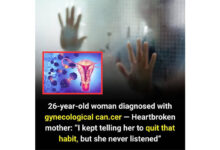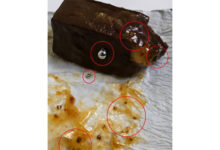5 things doctors advise against giving your kids to help lower cancer risk
Cancer is a heartbreaking illness that affects not just the person diagnosed, but also their family and friends. Fighting cancer can be a long and tough road, and unfortunately, not everyone who faces this illness comes out on top.
The harsh truth is that cancer can strike children of any age, from infants to teens. Luke Morin and Garrett Matthias were both just 5 years old when they lost their lives to cancer.
Luke lived only 17 days after being diagnosed with Diffuse Intrinsic Pontine Glioma (DIPG)—one of the rarest and most aggressive brain cancers in children, with a survival rate of zero percent. His family describes their son as “stolen from them,” and they are working tirelessly to raise awareness and funds in hopes of finding a cure for DIPG.
Garrett fought a rare childhood cancer for ten long months before he passed away. He understood his illness and even wrote his own obituary, expressing his desire to have a party at his burial, which his parents honored despite their heartbreak. Instead of a traditional sad funeral, which he disliked, they organized a celebration of life complete with a bounce house, snow cones, and an Asgardian-themed burial, inspired by Thor’s mother from the movie.

Both Luke and Garrett were cherished by their loving families and everyone who knew them. Their parents did everything they could to keep them joyful and healthy, but despite their best efforts, both boys developed cancer.
The reality is that their parents did nothing wrong. Cancer is simply cruel, and sometimes it’s genetic. While we can’t control whether we will be diagnosed, doctors suggest there are specific actions we can take to reduce risks, especially for our children.
There are five things that doctors recommend parents should not give to their kids.
- Ultra-Processed Meats (Hot Dogs, Bacon, Sausages)

The World Health Organization has labeled processed meats like ham, bacon, salami, and hot dogs as a Group 1 carcinogen, meaning there’s solid proof that these meats can cause cancer, according to the Cancer Council.
These items have nitrates and nitrites, which are preservatives that can create cancer-causing compounds in the body, particularly in the colon. Since kids’ digestive systems are still growing, they are more at risk.
Think about swapping them out for fresh lean meats, grilled chicken, or plant-based options.
- Sugary Drinks (Sodas, Energy Drinks, Even Some Juices)

Sodas, energy drinks, and even some juices are loaded with sugar, and drinking them can easily lead to obesity and diabetes.
The same applies to diet sodas, which many people think are healthier but actually mess with our metabolism and make us feel hungrier. Dr. London, who has nearly 400,000 followers on TikTok, calls soft drinks “liquid death.” Besides the high sugar content, these beverages also have artificial colors and preservatives that have been linked to cancer in animal research.
A better choice would be water with slices of fresh fruit or smoothies made from whole fruits.
- Plastic Containers and Bottles with BP

When serving drinks in plastic bottles and containers, there’s a risk that Bisphenol A (BPA), a chemical commonly found in these items, could leach into the food or beverages we consume. BPA acts as an endocrine disruptor, mimicking the hormone estrogen, which may elevate the chances of developing cancers like breast and prostate cancer.
Even if a plastic item is labeled “BPA-free,” it might still contain BPS (Bisphenol S), which poses similar dangers.
Instead, choose glass, stainless steel, or food-safe silicone containers, and avoid microwaving plastic.
- Heavily Fried or Charred Foods

Foods that are heavily fried or charred can create harmful substances such as acrylamide and HCAs, which are associated with an increased cancer risk.
Healthier cooking options include steaming or baking.
- Talc-Based Baby Powder or Products with Formaldehyde
Numerous baby powders containing talc have been linked to cancer risks due to potential asbestos contamination. Additionally, other baby care items like wet wipes and shampoos may have chemicals that release formaldehyde, which is considered carcinogenic.
When selecting products for your child, choose those that are free from talc and formaldehyde, preferably from brands that utilize natural ingredients.
These small yet significant choices can help lower the chances of your child facing cancer in the future. Children are more vulnerable to toxins and chemicals than adults, so it’s wise to prioritize their health and well-being.
Please SHARE this article with your family and friends on Facebook.

